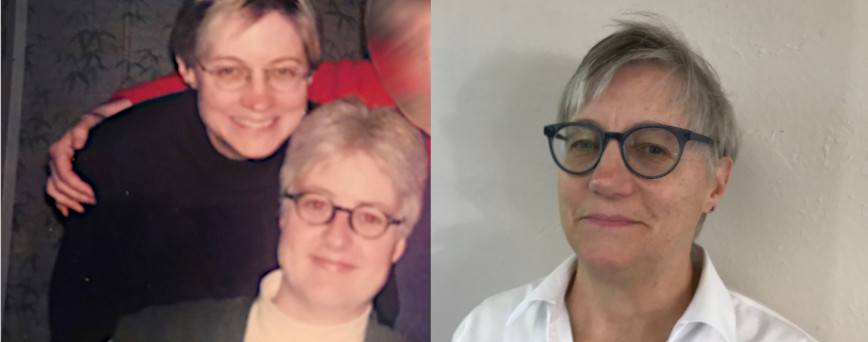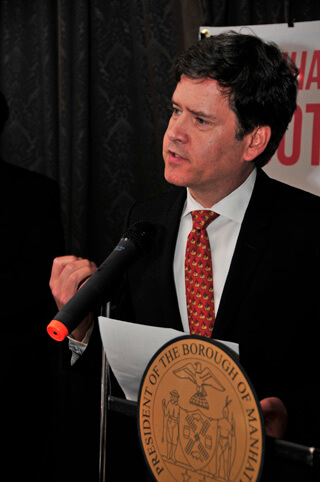Lambda Legal’s challenge to the Social Security Administration’s categorical denial of survivor benefits to surviving same-sex partners prevented from marrying by unconstitutional state laws has succeeded in a US district court.
On September 11, Senior US District Judge James L. Robart of the Western District of Washington bench in Seattle ruled that the SSA policy violates the equal protection and due process rights of the plaintiff as well as members of the national class that the court certified.
Lambda sued on behalf of Helen J. Thornton, whose partner of 27 years, Margery Brown, died in 2006, when the State of Washington still prohibited same-sex marriages by statute. Not too long afterwards, the state progressed to recognizing civil unions and, eventually, marriage equality, a few years before the Supreme Court’s 2015 ruling in Obergefell v. Hodges held that all state bans on such marriages were unconstitutional.
Lambda Legal prevails for client who lost her partner in 2006, when Washington State still denied marriage equality
In 2015, Thornton applied for the Social Security survivor benefits to which she would have been entitled had she and Brown been married when her late partner died. She contended that the women had been married in every practical respect and would have been married had the state law allowed it. As of 2006, there were only a handful of states where same-sex couples could marry, and neither Washington State nor the federal government would have recognized such a marriage at that time.
Since the laws prohibiting same-sex marriages are now known to have been unconstitutional, she argued, it was similarly unconstitutional to deny her the benefits. Under the Social Security Act, surviving spouses of people whose work record entitled them to retirement benefits are eligible to continue receiving the monthly benefits after their spouse dies, the main exception being that those married less than nine months before one spouse’s death are not eligible.
In addition to representing Thornton, Lambda sought class certification, so that the determination of the legal issues would apply to anybody who is in the same situation as Thornton. Class certification involves common legal and factual issues for all the class members, so that resolving the issues in a single proceeding is most efficient and economical for the judicial system and claimants.
Magistrate Judge J. Richard Creatura, who prepared a report and recommendations for Judge Robart, responded affirmatively to Lambda’s suit, recommending certification of a class that closely tracked the facts of Thornton’s case. The SSA opposed certifying the class, pointing out that each individual application presents different questions of proof about whether the applicant and their deceased partner would have been married at the time of death had their state’s law permitted it. Neither Creatura nor Judge Robart saw that as a problem, pointing out that the issue before the court is whether the categorical bar established by the SSA’s interpretation of the Social Security Act is constitutional. Once that question is out of the way, it is just a matter of fact-finding in individual cases.
On the central legal question, the government argued that because the statute does not discriminate on its face regarding sexual orientation, the categorical ban should be subjected to a rational basis test, a deferential standard of judicial review under which the SSA’s interest in efficiency and avoiding fraudulent claims was sufficiently rational to survive scrutiny.
The judges rejected that argument. Under Obergefell v. Hodges, the right of same-sex couples to marry is deemed “fundamental” in terms of both due process and equal protection, and the state laws that prevented these couples from marrying are clearly unconstitutional in retrospect. The Social Security Act, in turn, by relying on state law to determine the marital status of decedents and their survivors, is inextricably intertwined with the unconstitutional state laws. In light of that — and of Ninth Circuit Court of Appeals precedents holding that sexual orientation discrimination is subject to “heightened scrutiny” — both judges applied heightened scrutiny here, which means the burden was on the government to show that its rule substantially advances an important state interest.
Robart observed that the SSA never argued that its approach would survive heightened scrutiny, a concession that came back to haunt the government. But the judges went even further, finding that the policy failed even the less demanding rational basis test.
In light of these rulings, the only argument remaining was whether the definition of the class of potential plaintiffs was too narrow or too broad, with the parties taking opposing positions on that. The court rejected the government’s argument that it was too broad or that the court’s order should be confined to Thornton’s claim.
At the same time, the court rejected Lambda’s contention that relief should not be limited to people who applied to the Social Security Administration and were rejected for benefits. Robart pointed out that the statute only provides for judicial review of benefit denials, so the court has no jurisdiction to order relief for people who have not yet applied and been turned down.
The class certification also specifically excludes coverage of the claims of people who are part of the class in a separate lawsuit that challenges the denial of benefits to surviving spouses who were married less than nine months. Survivors of same-sex spouses they married as soon as marriage equality became available in their state but less than nine months before their spouse’s death are in that lawsuit’s class.
Robart directed the parties to submit their views on how the court should structure relief in this case. After that process is concluded, the government could seek review from the Ninth Circuit Court of Appeals.
Robart was appointed to the district court by President George W. Bush.
Lambda Legal attorneys on the case include Tara Borelli from Lambda’s Atlanta office, Karen Loewy from the New York office, and Peter Renn from the Los Angeles office. Local cooperating attorneys are Linda Rae Larson and Robert D. Thornton from Nossaman LLP, a Seattle law firm.





































